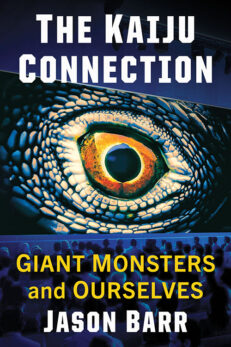Common Sales & Marketing Topics for New Authors
While McFarland is responsible for selling and marketing your book, your participation is crucial. At key milestones during the publication process, McFarland will automatically contact you with updates or to solicit suggestions. Several common sales and marketing concerns are covered here, including tips about how authors can help with promoting books. For topics not covered here, McFarland authors should direct questions to sales manager Adam Phillips.
Estimating a Book’s Release Date
While internet booksellers such as Amazon will advertise books for pre-order with a rough release date, we advise authors not to rely upon those estimates. McFarland is the best source for estimating release dates. Once McFarland receives a complete manuscript (with all items in place), publication takes an average of nine to fifteen months (but sometimes we’re much faster). You will hear from us with questions or comments, but don’t be surprised if there are periods of silence between communications. We are working behind the scenes.
Title, Cover Design, Format, Binding & Price
Once you delivered your manuscript, McFarland began work on several critical elements. A title, if one wasn’t already settled upon, will usually be finalized very soon after manuscript delivery. Your cover will be an essential marketing tool, and our experienced and talented in-house design department will finalize the cover design shortly after the manuscript is delivered. If you suggested cover ideas when you delivered the manuscript (see Preparing Your Manuscript), we will be happy to consider them.
Within a few weeks of delivery of your manuscript, attention will be given to format, binding and price. For the print edition, a decision will be made based on our judgment of what will produce the best sales result. An overwhelming majority of our new books are produced in softcover; a small number are originally offered in hardcover and later in softcover. We do not offer books simultaneously in both forms. We will also determine if your manuscript is eligible for an ebook edition (most are). Some books are compatible with an audiobook format, and if so, this is typically pursued after the publication of the print and ebook.
Early Advertising & Metadata
- Shortly after delivery of your manuscript, you will receive a marketing questionnaire. It is important that it be completed and returned promptly.
- Within a few months of delivering the manuscript, we’ll alert you about the addition of your book to McFarland’s online catalog. Help us make sure that the catalog description and your author bio are accurate.
- After the book has an internet listing, McFarland will invite you to share keywords that could be usefully applied to the book (to assist with search engine optimization and paid internet advertising.
- McFarland has longstanding relationships with the major booksellers, library jobbers, and ebook aggregators, and we begin the process of supplying metadata as early as possible. We advertise both physical and digital editions globally in multiple markets (institutional, trade, higher ed, consumer direct, international).
Social Media, Email & Personal Websites
- If you use social media platforms such as Facebook, Instagram, Threads and Bluesky, we encourage you to periodically post updates about noteworthy activities to your network of colleagues, friends and family. Examples of noteworthy activities are revealing the cover, sharing a link when the book first appears for pre-order on our site and Amazon, sharing a photo of your copies when you first receive them, and sharing a complimentary review.
- Posting noteworthy updates to your followers should be the focus for social media users. For authors interested in further experimentation with social media, authors should aim to interact with readers and provide them a service, not simply “sell.” Focus on building and communicating with a community of people who share an interest in your book’s topic.
- Follow McFarland on Facebook, Instagram and Bluesky, and refer to us in your posts.
- We encourage you to include in your email signature a brief mention of your book with a link to the book within McFarland’s online catalog.
- We encourage you to mention your book with a link in appropriate places such as your institutional webpage, personal webpage or blog, and bylines for journal articles.
Blurbs, Book Reviews, & Author Interviews
- Blurbs: Blurbs are pre-publication endorsements usually made by authors or experts in your field (different from book reviews published by media after a book is released). If you are interested in collecting blurbs, consult our blurb instructions.
- Media Reviews: If you are aware of media (journals, specialty magazines, websites, podcasts or blogs) in your particular field that cover books, we encourage you to contact them regarding book reviews or authors interviews. The optimal timing to undertake these inquiries is just prior and after your book is released, as well as during the months following while your book is still new. McFarland will supply a digital review copy to those reviewers, bloggers, podcasters and journalists.
- Customer Reviews: Customer reviews are recommendations from readers that are posted on internet booksellers such as Amazon and on social sites such as Goodreads. They come from general readers, family, friends and colleagues. Such reviews are important for persuading potential customers to purchase online. After the book is published, if you are aware of contacts, colleagues and others that have purchased your book, let them know you are appreciative and ask them to consider leaving a review online (on Amazon if they purchased there).
- McFarland Publicity: McFarland regularly emails new release announcements and flipbook catalogs to a broad list of media contacts, and has a self-service request form for free review copies. We also automatically distribute review copies to appropriate major review media depending on a book’s audience and subject (e.g., Choice). McFarland will automatically provide you with scans or photocopies of published reviews that we receive. We do not track or distribute scans of simple published listings or acknowledgments of “books received.” If you come across a review that McFarland may not be aware of, please send a copy to Stephanie Nichols.
Speaking Engagements & Booksignings
- When reasonable speaking opportunities are available, we encourage authors to seize those to speak at conferences, panels and local events. Speaking is a way for you to make connections and to generate awareness of your book. For event support, McFarland offers poster, flyer and bookmark designs upon request. Speaking engagements are sometimes also sales opportunities, and McFarland will work with you or the event host to supply books.
- Some authors are interested in doing book launches or signings. For timing, the conventional wisdom is for a book launch or local signing to be held within three months of publication. Although it is fine for authors to do some early planning for books that aren’t published yet, a book launch date should not be set until copies are in the McFarland warehouse and able to be supplied to either you or the signing host. For authors interested in doing more than one booksigning, the conventional wisdom is to limit events to one per market.
- Booksignings can be hosted in a variety of venues such as indie bookshops, other retail establishments, schools, libraries, and festivals. Your local indie bookshop—where you do your own book shopping—will often be your best resource. In general, bookshops of all sorts can host signing events for local authors. However, not all bookstores are happy to do so. Your bookstore host will know best which books make the best fit for their business.
- Please contact your local indie bookshop or other relevant signing host directly. The bookshop will want to work out local arrangements (what day, what time, what exactly will happen, etc.) with you. They will want to work with McFarland to obtain books (notify Stephanie Nichols and she will coordinate). Collaborate with your host to spread the word about the event and maximize turnout.
Conferences & Trade Shows
If you will be delivering a paper or sitting on a panel for a conference where McFarland is exhibiting, please let us know (preferably at least a few months in advance). We take requests for books to be displayed in our exhibit space. It is also common for authors to attend a conference where McFarland is not exhibiting. We can still support your conference with promotional materials upon request, and it is sometimes possible to arrange for the display of your book through another party. Conference-related inquiries should be emailed to Stephanie Nichols.
Additional Promotional Tips
- If your book is multicontributor, invite your contributors to help spread the word about the book.
- Claim your author profile with Amazon.
- Consider supporting an existing Wikipedia entry or creating a new entry that relates to the topic of your book. Above all, make sure your small contribution is relevant and helpful. Provide a note, or a few notes, referencing your book (make sure the note provides a link to the book’s permanent page in the McFarland online catalog). Wikipedia users that need to go deeper than the article will want to know about your book.
Library, Higher Ed, Retail, and Specialty Markets
McFarland promotes its books to all appropriate markets (library, higher ed, retail, specialty, and direct-to-consumer) through our business relationships with booksellers, our metadata routines, online/social/pay-per-click advertising, conferences and trade shows, and course adoptions. Much of our activities promote groups of books, subject lines and the company brand, though we undertake single-title promotion for each individual book, as well.
For more than 45 years, academic and public libraries have formed McFarland’s base market. Many of these libraries make their purchases through ebook aggregators, wholesalers, book jobbers and Amazon. Authors should check availability with their campus library, and also possibly with their local public library, but no special effort to contact libraries is asked of our authors. Authors of scholarly books can expect for library sales to be the major market for their book in its initial year (with internet sales — and hopefully course adoptions — subsequently rising to the top).
For applicable books, college classroom adoptions play a role in sales. If you plan to use your book in a course you teach, please inform us. For classroom-appropriate books that are multicontributor works, it would also behoove the author/editor to inquire with their contributors about adoption possibilities. Please email Kristal Hamby for assistance with or to share your ideas about advertising for classroom adoptions.
Our ebooks are offered to consumers through Amazon, Apple, Barnes & Noble, Google, and Kobo (among others). The strongest print retail market is internet retail. McFarland has longstanding relationships with the major internet retailers (Amazon, Barnes & Noble and BookShop.org), and our books excel in the internet retail environment, and we advertise heavily to drive internet sales.
Brick-and-mortar chain book retailers (e.g., B&N, Books-a-Million) will carry McFarland books in their system for special order, but are not known to speculatively stock books in-store. Independent bookshops and specialty booksellers will also carry McFarland books in their system, and can also usually make suitable arrangements with McFarland to stock and promote books on the store shelf.
It is perfectly fine for authors to introduce themselves (and their books) to their local indie bookshop or other bookseller. For regional titles or for authors with a local following, stocking or placing copies into a consignment program can sometimes make a difference in local sales. Authors may also make inquiries with specialty booksellers. However, between in-store versus internet, driving internet sales is ordinarily a wiser investment of an author’s time.
McFarland successfully sells directly to individuals. Specialists, professionals and enthusiasts form an important market for many kinds of books. If you are aware of any unique opportunities to advertise your book to a specialized group or professional organization, for example, please let us know. Email Adam Phillips.
Author Discounts
McFarland extends a special discount to authors, editors and contributors. Contact Stephanie Nichols to receive your coupon code for discounts.
Royalties
There are several questions that are frequently asked about royalties, including questions about discounts for booksellers and when booksellers pay McFarland for their purchases. Here are the essentials. The contract specifies royalties are paid annually (in the early part of the calendar year), but for many years, McFarland has also offered a second, midyear statement and payment (usually mid to late summer). Royalties are based on paid sales. For every dollar that McFarland takes in, an author gets their cut as specified in the contract. Note that some copies are sold at a discount, and the author’s royalty is based on what McFarland is paid. Also, note that most booksellers do not make payment at the time they order stock. Instead, most are invoiced and make their payment later. Questions about royalties can be directed here.
Checking on Sales Figures
McFarland’s business department will automatically provide you with complete figures for paid sales (both copies and dollars), usually twice per year. You do not have to request this information—it will be supplied automatically. While business department staff is not able to provide information routinely about which sales have been paid, authors may write to them for figures of current shipments and billings. Email your requests here. Please help us serve all of our authors better by keeping these requests infrequent.
Typos, Errors and Requesting Corrections
If you have detected a typo or an error for your book’s website description, please email marketing coordinator Kristal Hamby. In most cases, website-related correction requests are addressed within five business days. (However, if you are recommending extensive changes or a replacement description for your forthcoming book, changes could take longer.)
If you notice missing information, typos or errors on other sites (such as Amazon or Google) and you are unable to correct them directly, please inform Kristal Hamby. Availability messages from these retailers may fluctuate in the days after a book is published—this is normal. However, if incorrect messages about availability or publication date persist for more than a few weeks, email us.



